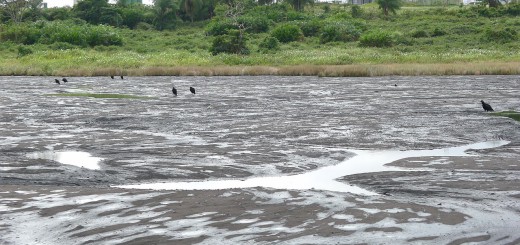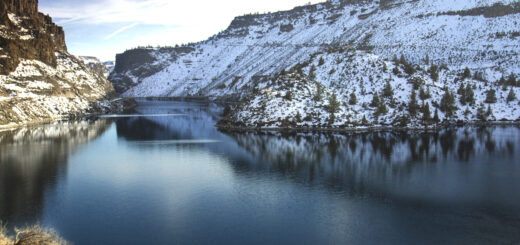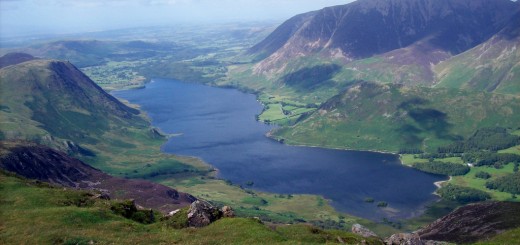Human Activity And Hypoxia In Lakes
0An investigation led by Canadian scientists has found that the spread of hypoxia in freshwater systems around the globe is not likely linked to changes in climate. Instead, the researchers say, a rise in hypoxic conditions in lakes is correlated more closely with increases in human activity.
To make the determination, scientists amassed a dataset of 365 lakes around the world and charted hypoxic conditions, typically represented through sediment core data, all the way back to the year 1700. These data were considered alongside others relating to the growth of human populations, their activities and nutrient releases.

Yellowstone Lake. (Credit: Yellowstone National Park / Public Domain)
Through assessing the available data, researchers found that the onset of hypoxia in many of the lakes appeared to be due to direct and local man-made impacts. The scientists also considered the effectiveness of rehabilitation, or restoration, programs meant to help re-establish oxygen levels in lakes’ bottom waters. These programs have mostly failed, they found.
Investigators say that it is difficult to identify the main forcing factor between human activity and climate change, noting that long-term monitoring would be needed to make more concrete findings. But since these data are lacking, reconstructing hypoxia records using sediment cores is the next best option because sediment structures offer simple proxies for seeing the oxygenation history of lake bottom waters.

An underwater photo of the gravel bottom of Yellowstone Lake, overlaid by a varved sediment core. (Credit: J. Schmidt)
Lakes included in the study were located in a variety of climates and biomes, with varying degrees of human impact. Seventy-one of the lakes, about 20 percent, have shifted to hypoxic conditions since the middle of the 1800s, scientists found. These water bodies were most commonly located in areas with higher human population density and nutrient emissions than sites that were naturally hypoxic.
Underscoring their finds, scientists say that no correlations were found between an uptick in hypoxia and precipitation or temperature data.
Full findings of the investigation are published in the journal Global Change Biology.
What do you think of the study’s findings? Is there other evidence out there that might contradict the results? Please consider leaving a comment to share your thoughts!













